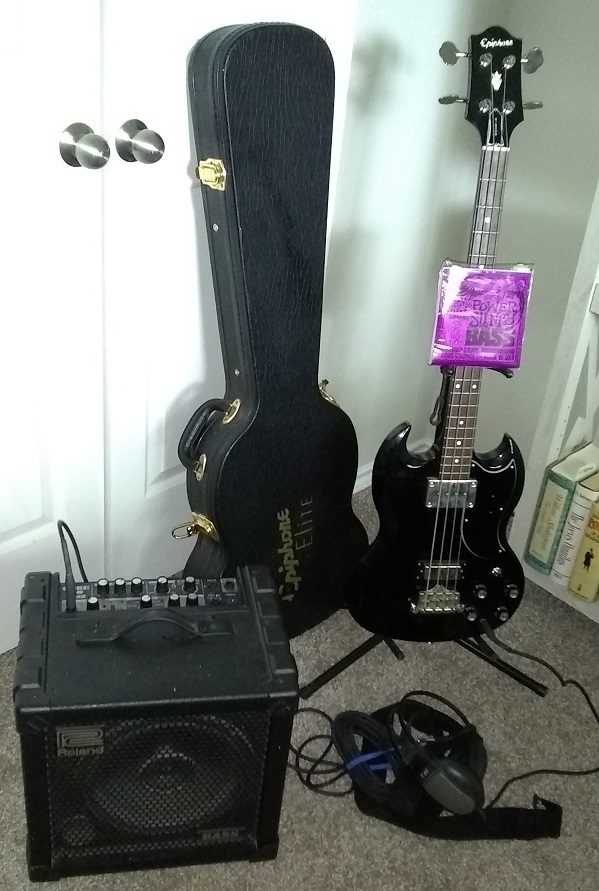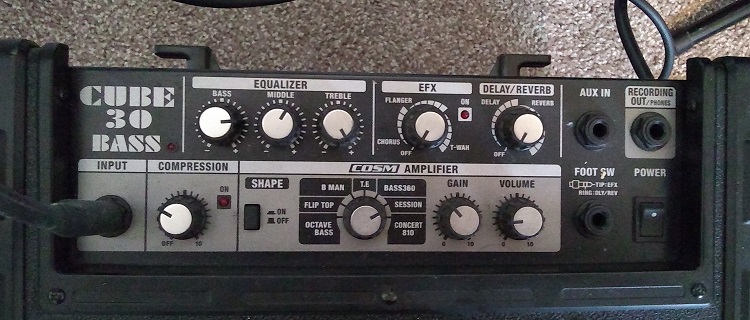Oh please, make it stoppppp…

[whimper]

I wonder what Mozart and Beethoven,to name but two of the all-time great composers, would have thought of this orchestral version of Genesis’s Firth of Fifth ?
Here’s one take, from a modern-day classical composer. (It’s quite long, but very much worthwhile.)
It’s not all Steely Dan and Genesis, folks.
Steely Dan’s Midnight Cruiser
Actually, it’s been stuck there for about the past three days. But if you’re going to have one of those, there are a LOT worse.
For the past four days I’ve tried to play my bass guitar — trying to push through the agony of Olde Phartte joint pain, hoping that with regular practice I could fall into playing it for fun again.
No such luck. In fact, Day 4 (yesterday) was so bad that I quit after an hour.
I give up. So:
4 Sale —
Epiphone EB-3 (copy of Gibson) 4-string bass, hard case, spare set of Ernie Ball strings, strap, headphones and cords:

The only mod I made was replacing the utterly useless rotary pickup selector switch with a three-way (bridge, neck and bridge&neck), because the POS rotary broke after a month or so’s gentle (i.e. home) use. Otherwise in as-new condition.
Price: Sweetwater has them at $400; I’m asking $250 plus whatever shipping is required. (N.Texas residents will get it dropped off at a place of their choice.)
Roland Cube 30 Bass amp (30w, 10″ speaker):

For reasons best known to themselves, Roland discontinued this little sweetie. I just wish I’d had it as a gig amp instead of the monster I used to slip discs putting into the van. Everything works as advertised.
Price: as it’s been discontinued, the closest equivalent I can find is this Ampeg, which is also solid state and 40w, with a 10″ speaker, but with no COSM features. Guitar Center sells it for $150; I’ll take $100 for the Roland, plus shipping. (Same deal for N. Texans.)
So: $350 for a bass/amp gig setup which quite frankly would have served me well in my misspent yoot.
Let me know by email (kim@) if you’re interested. I’d prefer to sell them as a package, but that’s not set in concrete. (BTW: I don’t haggle, unless we’re talking about an exchange for a .22 rifle or pistol of similar value which is taking up needed space in your safe.)
Update: I found a good home for the gear: a young lady heading for a college music school.
Robbery Assault and Battery, mostly the instrumental bars between the verses.
It’s a good thing I didn’t post this over the weekend, because it was Velcro-looped Afrikaans “boeremusiek” (I can’t even write the song title lest it start again ugh). Consider yourselves lucky.